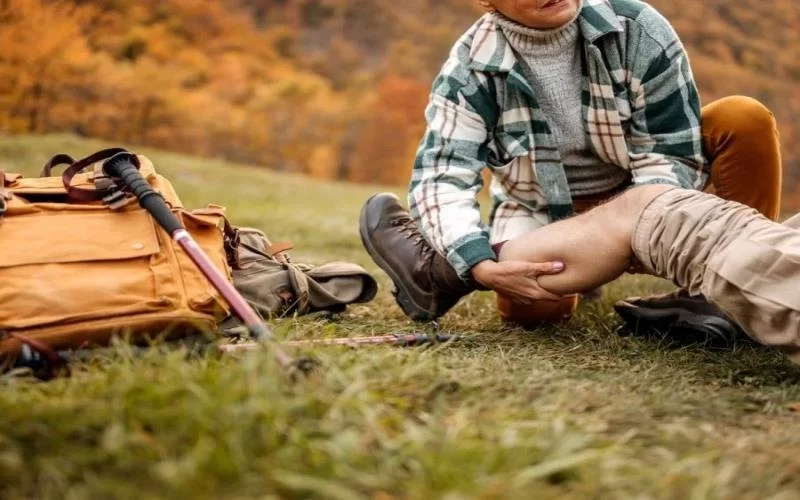Discover the essential first-aid gear you need for outdoor adventures. Learn how to prepare for emergencies and stay safe while exploring nature with tips from Pine Cliff Resort.

- #why-preparing-first-aid-gear-is-crucial-for-outdoor-adventures
- #understanding-the-different-types-of-outdoor-first-aid-kits
- #essential-items-every-outdoor-first-aid-kit-should-include
- #real-life-experiences-and-lessons-learned-in-the-wild
- #maintaining-and-customizing-your-first-aid-gear
- #expert-tips-and-recommendations-from-pine-cliff-resort
1. Why Preparing First-Aid Gear Is Crucial for Outdoor Adventures
Whether you’re hiking, camping, or backpacking across the Rockies, accidents can happen when you least expect them. A scraped knee, insect bite, or sprained ankle may seem minor, but when you’re miles away from medical help, even small injuries can escalate quickly. That’s why having a reliable and well-equipped first-aid kit isn’t optional—it’s essential.
Outdoor experts agree that preparation is the foundation of safe and enjoyable exploration. The best adventurers don’t just pack maps and snacks—they bring the right medical tools to handle unexpected situations. At Pine Cliff Resort, we’ve seen how a properly stocked first-aid kit can turn a potential emergency into a manageable moment, ensuring peace of mind for every traveler.
2. Understanding the Different Types of Outdoor First-Aid Kits
2.1 Basic Kits for Day Hikes
For short excursions or day hikes, you don’t need a full medical setup, but your kit should still cover the basics. Include adhesive bandages, antiseptic wipes, tweezers, pain relievers, and blister pads. Lightweight and compact designs make it easy to carry in your backpack without weighing you down.
2.2 Extended Adventure Kits for Camping and Backpacking
If you’re heading out for several days, your kit should expand to include gauze rolls, medical tape, burn ointment, elastic wraps, and scissors. You’ll also want to pack allergy medication, insect sting relief, and antiseptic cream. For campers venturing deep into the backcountry, consider adding water purification tablets and a small CPR mask.
2.3 Specialized Kits for Extreme Conditions
For rugged adventures—like mountaineering or remote desert exploration—specialized gear becomes vital. Emergency blankets, SAM splints, hemostatic dressings, and even satellite communication devices can make a life-saving difference. When you’re hours from professional help, being prepared for trauma, bleeding, or shock could be the difference between safety and disaster.
3. Essential Items Every Outdoor First-Aid Kit Should Include
3.1 Wound Care Essentials
Cuts, scrapes, and blisters are common outdoor injuries. Keep a mix of adhesive bandages, sterile gauze pads, and medical tape. A small bottle of antiseptic or hydrogen peroxide can clean wounds, while antibiotic ointment helps prevent infection. Adventure-ready kits also include butterfly closures for deeper cuts that may need extra care.
3.2 Tools and Equipment
A good first-aid kit isn’t just about medicine—it’s about tools. Tweezers can remove splinters or ticks, while scissors help trim tape or cut clothing during emergencies. A digital thermometer, safety pins, and gloves are small but crucial items. In cold climates, chemical hand warmers can help prevent hypothermia when treating injuries outdoors.
3.3 Medications and Emergency Supplies
Always include over-the-counter pain relief (like ibuprofen or acetaminophen), antihistamines for allergic reactions, and rehydration salts to combat dehydration. Adventure medics also recommend carrying anti-diarrheal medication and motion sickness tablets, especially for longer treks.
If you have personal prescriptions, keep an extra supply sealed and labeled. Outdoor conditions can delay access to pharmacies, so preparation ensures consistency in treatment.
4. Real-Life Experiences and Lessons Learned in the Wild
Many seasoned adventurers have stories that highlight the importance of first-aid preparedness. Take Emily, a backpacker from Colorado, who once slipped on a wet trail near Zion National Park. With no cell service and a twisted ankle, her friend’s elastic bandage and pain relievers from their first-aid kit allowed her to hike back safely to camp. Without that gear, the situation could have required emergency evacuation.
Another case involved a family camping in Montana who used burn ointment and sterile pads from their kit after an accidental brush with a campfire. Thanks to their preparation, the injury healed cleanly without infection. These real-life examples prove that quick access to first-aid tools can turn stressful situations into controlled recoveries.
5. Maintaining and Customizing Your First-Aid Gear
5.1 Regularly Inspect and Restock
A first-aid kit is only as effective as its condition. Check expiration dates every few months and replace used or damaged items. Moisture, heat, and cold can degrade supplies, especially adhesives and medications. Keeping your kit in a waterproof pouch or hard case helps extend its lifespan.
5.2 Personalize for Your Group and Destination
Every adventure is different, and your first-aid kit should reflect that. If you’re hiking with kids, include children’s medication and smaller bandages. For high-altitude trips, pack altitude sickness tablets. Pet owners should carry vet-approved ointments or tick removers for furry companions.
At Pine Cliff Resort, outdoor guides recommend customizing kits based on location, duration, and season. This approach ensures you’re ready for specific risks—whether it’s poison ivy in the East or rattlesnakes in the Southwest.
6. Expert Tips and Recommendations from Pine Cliff Resort
The team at Pine Cliff Resort believes that preparedness empowers confidence. They suggest pairing your first-aid kit with basic first-aid training, which teaches you how to handle bleeding, sprains, and heat exhaustion effectively. Knowledge and the right equipment together can make every outdoor experience safer and more enjoyable.
Before each trip, review your gear checklist, make sure your supplies are up-to-date, and brief your travel group on where the kit is stored. Accidents are unpredictable, but with proper planning and the right tools, you’ll be ready to handle them calmly.
Ultimately, the best adventures are the ones where you return safely—with stories to tell, not scars to remember. With reliable first-aid gear and smart preparation, you can explore the outdoors with confidence, knowing you’re ready for whatever nature brings your way.
Camp Overflow
700 Tolland Rd, East Otis, MA 01029, USA
Visit Location PageKalbus Country Harbor Inc.
5309 Lake Rd, Oshkosh, WI 54902, USA
Visit Location Page